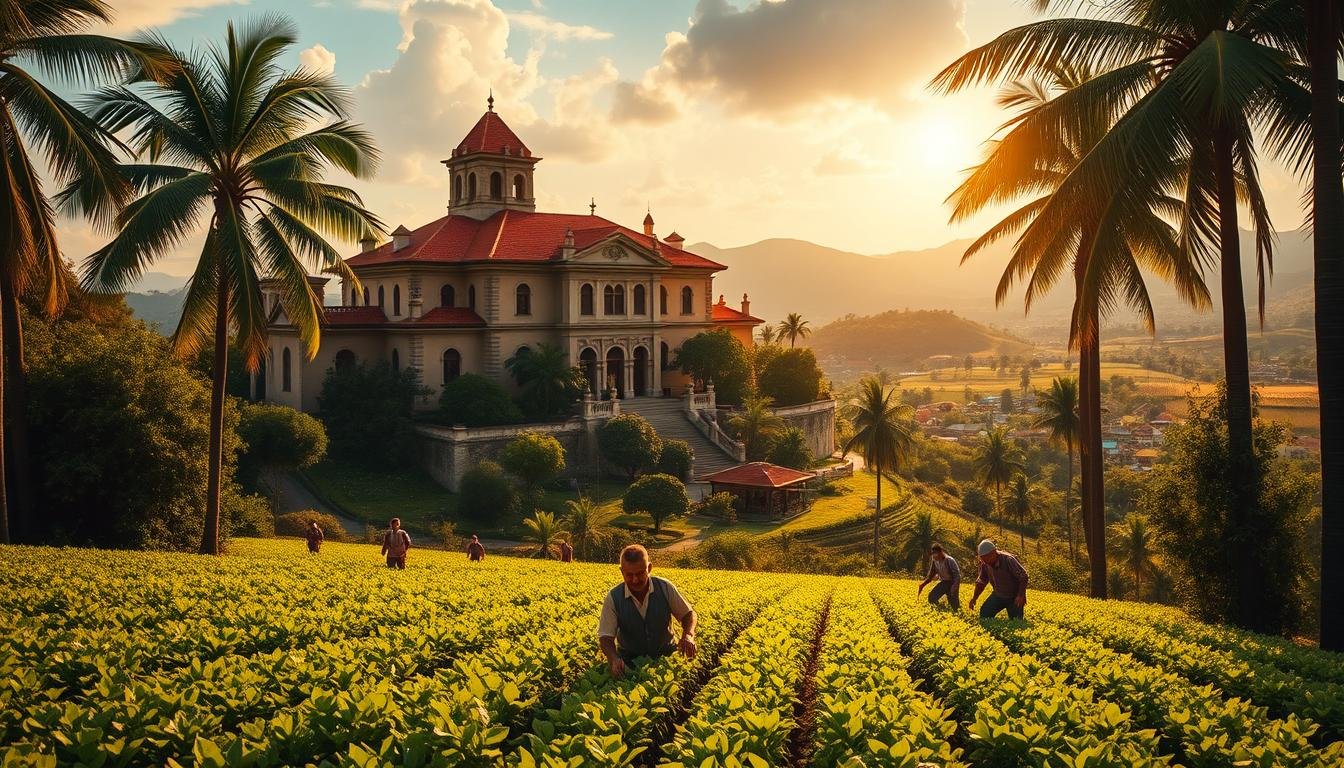On January 20, 1872, a small but significant event at Fort San Felipe in Manila changed the course of Philippine history. Known as the Cavite Mutiny, this uprising involved Filipino soldiers and laborers who protested against harsh government policies. Though it was quickly suppressed, its aftermath sparked a wave of nationalism that would eventually lead…
The Rise of the Hacienda System: Land Ownership and Labor
Did you know that by 1910, 90% of agricultural laborers in Mexico had no land rights? This startling fact highlights the deep inequalities shaped by the hacienda system, a cornerstone of colonial economies in Spanish America. A hacienda refers to a large estate, often used for agriculture or mining, that became a symbol of wealth…
The Impact of Spanish Language on Filipino Culture
Did you know that over 20% of Tagalog vocabulary has roots in Spanish? This surprising fact highlights the deep connection between the Philippines and its colonial past. For over 300 years, Spanish colonization shaped the archipelago’s culture, traditions, and identity. The introduction of new customs, religious practices, and linguistic elements during this period left a…
The Introduction of Christianity: Conversion and Resistance
Did you know that over 3.8 million people converted to Christianity annually in the early 2000s? This staggering number highlights the religion’s global influence and enduring legacy. From its humble beginnings to becoming one of the world’s largest faiths, the story of Christianity is filled with dramatic narratives of conversion and resistance. Throughout history, the…
Ancient Filipino Concepts of Property and Ownership
Did you know that the Philippines has a rich history of property rights that dates back centuries? Long before modern legal frameworks, ancient Filipino societies had their own systems for managing valuable assets. These systems were deeply rooted in cultural practices and community values. In traditional Filipino communities, property was not just about land or…
Pre-Colonial Philippine Social Customs and Etiquette
Did you know that pre-colonial Philippine societies had literacy rates so high that even Spanish chroniclers were amazed? This fact highlights the advanced social structures that existed long before foreign influence. Social customs and etiquette played a pivotal role in shaping these early communities, serving as the backbone of both ceremonial and economic activities. In…
Ancient Filipino Concepts of Time and Calendars
Did you know that the Laguna Copperplate Inscription, dating back to 900 A.D., reveals an advanced understanding of timekeeping in ancient Filipino society? This artifact, among others, highlights how early Filipinos measured existence through events and natural cycles. In ancient Filipino culture, time was not just a linear concept but deeply tied to nature and…
Pre-Colonial Philippine Art Forms: Sculpture and Carving
Did you know that the oldest known wooden boat fragments in the Philippines date back to 320 AD? This discovery highlights the remarkable craftsmanship of pre-colonial Filipinos, who excelled in creating functional yet artistic objects. Long before modern tools, these early artisans used their skills to shape wood, stone, and other materials into works that…
Pre-Colonial Philippine Knowledge of Astronomy and Navigation
Did you know that pre-colonial Filipinos navigated vast oceans using only the stars and their understanding of the solar system? Long before modern technology, indigenous communities in the Philippines developed sophisticated methods to observe the sky. These practices were not just for navigation but also guided their agricultural cycles, fishing seasons, and daily lives. For…
The Galleon Trade: A Lifeline Between Manila and Acapulco
Did you know that over 30 ships were lost at sea during the historic Manila-Acapulco route? This maritime path, spanning over 8,000 miles, became a lifeline connecting Asia, the Americas, and Europe for nearly 250 years. It was a journey fraught with danger, yet it shaped the course of global commerce and cultural exchange. Under…










